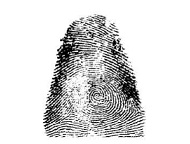Before entering fully into the discovery of the meaning of the term indelible, we are going to proceed to know its etymological origin. In this case, we can establish that it derives from Latin, specifically from “indelebilis”, which means “that cannot be erased” and that it is the result of the sum of the following lexical components of said language:
-The prefix “in-”, which is synonymous with “no” or “without”.
-The verb “delere”, which can be translated as “delete” or “destroy”.
-The suffix “-bilis”, which is used to indicate possibility.
The term indelible is used to describe what is impossible to eliminate or erase .
 For example: "To register that a citizen voted, the electoral authority makes a mark with indelible ink on his document" , "Thanks to his great performances and all the titles he achieved, the player retires leaving an indelible mark on the club" , “The indelible memory of my grandmother always accompanies me.”
For example: "To register that a citizen voted, the electoral authority makes a mark with indelible ink on his document" , "Thanks to his great performances and all the titles he achieved, the player retires leaving an indelible mark on the club" , “The indelible memory of my grandmother always accompanies me.”
Among the words that can be used as synonyms for indelible, some stand out such as these: indelible, immutable, inextinguishable, enduring, permanent, unalterable, durable, persistent or solid. On the contrary, among its antonyms we find words such as erasable, mutable, temporary, extinguishable, alterable, transitory or even variable.
The notion of indelible can be used in a physical or symbolic sense. In the first case, it generally refers to an ink or paint that, due to its characteristics, is very difficult to remove from a surface .
Typically, indelible ink is used when you want a text, a drawing, a signature or a stamp to persist over time and cannot be erased, even on purpose, without damaging or destroying the paper, cardboard or support used.
Indelible inks are used for security reasons. When a fingerprint needs to be recorded on a document, an ink of this type is used so that, no matter how many years pass, the fingerprint in question remains unchanged.
Within the field of cosmetics, it is very common for the term indelible to be used to refer to some that are very long-lasting. This would be the case, for example, of indelible lipsticks that are identified because they can allow a woman to have her lips painted perfectly for 24 hours straight. And these cosmetics do not spoil even if the person drinks or eats throughout that aforementioned period of time.
The indelible can also be something abstract. Suppose a ten-year-old boy travels to a coastal city for his first summer vacation. There he meets the sea , gives his first kiss and enjoys experiences he had never experienced before. The trip, therefore, leaves an indelible mark on this person's soul: no matter how many years pass, they will always remember it.
Furthermore, we cannot forget the literary work “The indelible stain. Stories written in exile and notes on the art of writing stories. It was published in 1962 and is written by Juan Bosch (1909 -2001).
